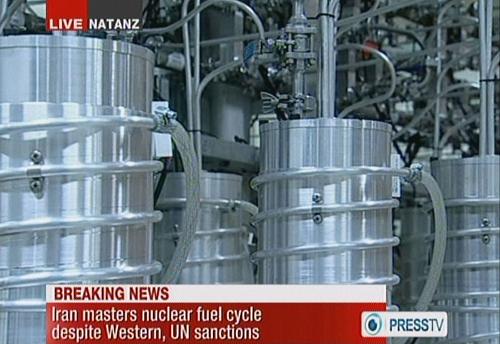US dismisses Iran's nuke achievements
 0 Comment(s)
0 Comment(s) Print
Print E-mail Xinhua, February 16, 2012
E-mail Xinhua, February 16, 2012
The United States on Wednesday dismissed the nuclear achievements demonstrated by Iran as something not terribly new and impressive.
Speaking at a regular news briefing, US State Department spokeswoman Victoria Nuland said that Washington expected to learn more from the International Atomic Energy Agency inspectors currently on the ground in Iran about what the country demonstrated earlier the day.
She said that Iran's move laid bare the pressure of its international and diplomatic isolation, as the "unprecedented" sanctions are still growing.
"Well, I can't speculate any further as to Iran's motives behind its various actions. But our view on this is it's not terribly new, and it's not terribly impressive," she said, adding "This strikes us as calibrated mostly for a domestic audience."
At a ceremony held in Tehran, Iranian President Mahmoud Ahmadinejad unveiled nuclear fuel rods, new generation of centrifuges and a number of radioactive medicines for the treatment of cancer. He also fed a home-made fuel rod made out of 20-percent enriched uranium into the core of the Tehran Research Reactor.
Nuland also confirmed that EU foreign policy chief Catherine Ashton had got a response from Saeed Jalili, Iran's chief nuclear negotiator, to the letter she sent in October last year, a move the West had been demanding as a precondition for the resumption of talks with Iran over its controversial nuclear program.
"We are studying the letter. We've seen a copy. We are working with our P5+1 partners to evaluate the contents," Nuland said, referring to five other powers -- Britain, China, France, Russia and Germany, which had led talks with Iran together with the United States.
"Our interest is in Iran abiding by its international obligations, renouncing its interest in nuclear weapons and returning to the international community," White House spokesman Jay Carney said.
"And that path remains open to Iran as long as it is interested in talks that they would approach in a constructive manner," he told reporters aboard Air Force One en route to Wisconsin state.
The West suspects that Iran is developing nuclear bombs under the cover of its nuclear program, while the Islamic republic insists the program is only for power generation and medical purpose.






